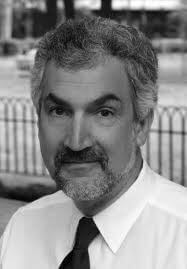Islam vs. Islamism, Is the Problem Religion or Ideology?
an Evening with Daniel Pipes
Lecture, Discussion, Q&A, and ReceptionMay 13, 2013, 7 PM
Thank you to everyone who came out to hear the talks and panel discussion with Daniel Pipes, Salim Mansour and Brian Lee Crowley. Below please find the column that MLI’s Brian Lee Crowley published in the Ottawa Citizen based from his remarks. Keep checking macdonaldlaurier.ca/events for upcoming debates, discussion and other thought provoking events.
Anti-Islam prejudice is no way to defend freedom
BY BRIAN LEE CROWLEY, OTTAWA CITIZEN MAY 24, 2013
As the outrages of militant radical Islamists become ever more horrific, the temptation in western societies to give in to anti-Islam prejudice becomes ever stronger. When the Toronto 18 were arrested, several mosques were vandalized in the Toronto area. Post 9/11 in the U.S. and post 7/7 in the UK, movements have emerged to oppose the building of mosques.
Expressions of hostility to Muslim immigration or dress are never far from the surface, and every beheading of a soldier in the streets of London, or mass shooting by a madman shouting “God is great” gives extra cover to people who cannot distinguish between radical Islam and ordinary law-abiding Muslims.
Yet being able to make this distinction — to punish wrongdoers while defending the freedoms of everyone who obeys the law, including Muslims — is the bedrock condition of being both free and safe.
Because the free society is not a mutual suicide pact, we have developed ways of protecting our freedoms from those hostile to them, while protecting everyone who respects our core values.
Central to this is drawing a clear distinction between belief and action. We may believe whatever we want; our minds are private and not the province of legislators or police. But we are not entitled to act on beliefs or ideas that impinge on the protected sphere of rights and personal security that we promise to all other members of society. I cannot insist on this too strongly: it is not illegal, nor should it be illegal, to be a radical Islamist, to believe that infidels are a disgrace in the eyes of God, or to believe that the Quran supersedes human-made law. What is illegal is to act on these beliefs when doing so infringes on the rights and freedoms of others.
In the free society we are not entitled to use each other as things to be used to satisfy our desires. People are not things. They are individuals with rights. This means that we are forbidden to use any kind of coercive means to impose our views on others, up to and including murdering people who disagree with us as a means of intimidating members of our society and of undermining our institutions.
Robbing or defrauding or assaulting someone is to use them for your own ends without their consent. And so, too, is blowing them up with suicide bombs, derailing trains in which they are passengers, or releasing anthrax in the air.
The thing all these acts have in common that makes them morally reprehensible is that it takes human beings who are entitled to rights, respect, and autonomy and treats them as playthings, as objects to be bent to your will, or casually destroyed.
We do not allow this, and we punish severely those who do not follow this most basic rule of civilized behaviour in liberal democratic society. This is the foundation stone of such societies.
Only the weak-minded cannot — or fear to — distinguish between religious freedom and promotion of terrorism.
Such promotion includes conspiracies to incite people to break the law. Doing so under the cover of religion cannot be an excuse for us failing to recognize the corrosive and destructive nature of such acts, which by their nature deprive themselves of the protection of religious freedom.
Those who counsel criminal acts within the mosque or the madrassa, for example, cannot expect to enjoy the protection of freedom of religion for their words.
They are illegal and unacceptable and no genuinely liberal-democratic society can or should tolerate them.
If we allow our legitimate fear of radical Islamism to outweigh our commitment to religious freedom, including for Muslims, tenants of one of the world’s great religions, we become intolerant authoritarians.
If on the other hand we kid ourselves that radical or militant Islamism is not a serious threat to public order and public safety, we risk a serious decline in public trust, as fearful citizens lose confidence in the safety of their society and bullies have their way with us. Either way, freedom is deeply endangered.
The right balance requires that occasionally we must act in ways that make us uncomfortable. We must ensure that our houses of worship, schools, prisons and other institutions are not being used to promote illegal acts, no matter what thin veneer of religious respectability their proponents may fashion for them. We must do this for the same reasons we take vigorous steps to ensure anti-Muslim extremists cannot act on their beliefs.
If we are serious about freedom we must police the frontier between thought and act without fear or apology. Not to do so is to prove ourselves unworthy of the heritage of freedom we enjoy and for which so much has been sacrificed.
This event is co-sponsored by the Free Thinking Film Society, Cardus, The Macdonald-Laurier Institute, The Council for Muslims Facing Tomorrow, and The Centre for Israel and Jewish Affairs.









Leave a Reply